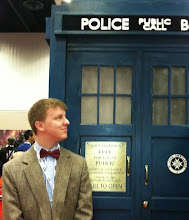Roman Polanski adapted Robert Harris’s novel, The Ghost, with the right mentality. The film is focused on what the characters and situations are actually capable of. This creates honest paranoia and stakes. There are no Bourne-esque chase scenes or elaborate gun fights. This is not a criticism, but a compliment. Those elements work for Bourne and Bond because they are more than human. Most thrillers aren’t about those types of people. The last film I’ve seen to do this properly was a French film called Tell No One, also based off an American mystery novel.

The Ghost Writer is about an unnamed writer (Ewan McGregor) who is called to serve as a replacement writer for Adam Lang’s (Pierce Brosnan) memoirs. Lang used to be Prime Minister of Great Brittan and is not subtly Tony Blair. Bravo for not casting Michael Sheen in this role. The original ghost for Lang’s memoirs drowned. The publisher is anxious to get the book out because scandals are making Lang more infamous than ever. There is something about the memoirs that are having a lot of people nervous including Lang’s personal secretary (Kim Cattrall) and his wife (the wonderful Olivia Williams).
The conspiracy unravels in a naturally peculiar pace, but Polanski does a great job at establishing a certain tone throughout the whole film. There is uneasiness to go from several shots overlooking the distant, shifting sand to shots where people feel a little too close to the camera. Ordinary places become prisons and nobody is saying what they are truly thinking.

The writer knows he is supposed to stay within the shadows, but his own curiosity and morality makes him want to pursue this story. He often states that he is not political so he has a certain objectivity that others do not. This is McGregor at his best playing a very witty man who is not a superhero. (Isn’t it refreshing to have an on-screen writer actually write good stuff?) He is allowed to be scared and uncertain. One of his best scenes is a conversation with the always-fantastic Tom Wilkinson. The clues have led him to this house and he knows there is significance, but he is not sure what it is. So he just carefully balances the line without revealing too much.
The film is very satisfying, but it is easy to pick out the clues that sustain believability. They never succumb to Scooby-Doo level—Jinkees, look at these footprints—but the way the final twist is revealed is a bit groan-worthy. Aside from that moment, the film treats the audience with a degree of intelligence that has become rare in films. These types of films allow for performances and screenplays with depth. It is for those reasons this is the type of thriller that will be remembered and recommended ten years from now instead of dying in the $2 bin.
http://blog.movieset.com/movie-reviews/ticket-stubs-the-ghost-writer


Damn, you beat me to it! I have a review of this coming out tomorrow and it has a similar line about the prison-like quality of the settings. However, my review isn't quite as positive as yours. You'll have to check the site tomorrow to see why...
ReplyDelete